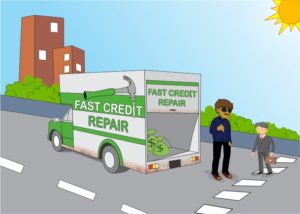The Very Many Benefits Of Having Good Credit
 Everyone desires a good credit rating. Possessing one can unlock financial doors and make you look much more appealing to creditors. However, many people don’t realise how easy it is to build up a credit rating with the correct financial decisions. This is especially important for young people during their 20’s who may hope to apply for a mortgage in the future. It can also be used to provide you with business loans, short term cash advances, and even simple things such as mobile or broadband service contracts.
Everyone desires a good credit rating. Possessing one can unlock financial doors and make you look much more appealing to creditors. However, many people don’t realise how easy it is to build up a credit rating with the correct financial decisions. This is especially important for young people during their 20’s who may hope to apply for a mortgage in the future. It can also be used to provide you with business loans, short term cash advances, and even simple things such as mobile or broadband service contracts.
However, applying for the best signature loan or car finance deal will take shrewd financial planning. While this may seem like ‘boring planning time,’ it can be immensely valuable, and any hour spent here can translate to days or weeks of solid financial security. In a tumultuous world, this can be the bedrock you need to truly live the life you want.
The steps to building great credit are as follows:
Stay Aware
Many people will tell you the first best thing you can do is to apply for credit cards, make your purchases and pay back the balance promptly. This is an excellent guiding point, but it’s not the most important. Staying aware of your credit rating at all times, as well as the circumstances that might bring it down, is just as important. Not only does staying aware in this way give you the opportunity to identify past debts or loans which have completely gone unpaid, but they’ll help you understand and potentially build a timeline for how long you can expect to be in the ‘good credit’ bracket. This can help you plan significant financial investments in the future at a much more accurate timescale than someone who is simply ‘guesstimating’ the process.
Don’t Be Afraid Of Cosign Loans
Cosign loans often exist to help you with a financial circumstance, such as an emergency payment or a large gift you’re buying, without subjecting you to the dreadful high APR a low to medium credit score can net you. Simply find another guarantor to sign their name on the loan in good faith, and repaying the loan back on time (or better earlier,) can help skyrocket your credit score. Of course, asking someone to take this risk on you is a very personal and demanding affair, so be sure to be completely upfront about the loan terms and your requirements for taking it.
Financial Links
Sometimes, your credit score can be affected by the financial links you have. For this reason, staying aware of opening joint bank accounts is appropriate. Unless you have been happily married for at least a year, it’s likely that opening one should be postponed.
Check Information
The simplest way to keep on top of your credit score, and to make sure it’s accurate, is to update your information at all times. Changing certain information such as your current address, marital status and dependants help your credit profile with its accuracy. Not falling down at the first hurdle when applying for credit can be the first line of success in getting accepted.
With these simple tips, you’re much more likely to begin your ascent into solid credit reliability with ease.
















